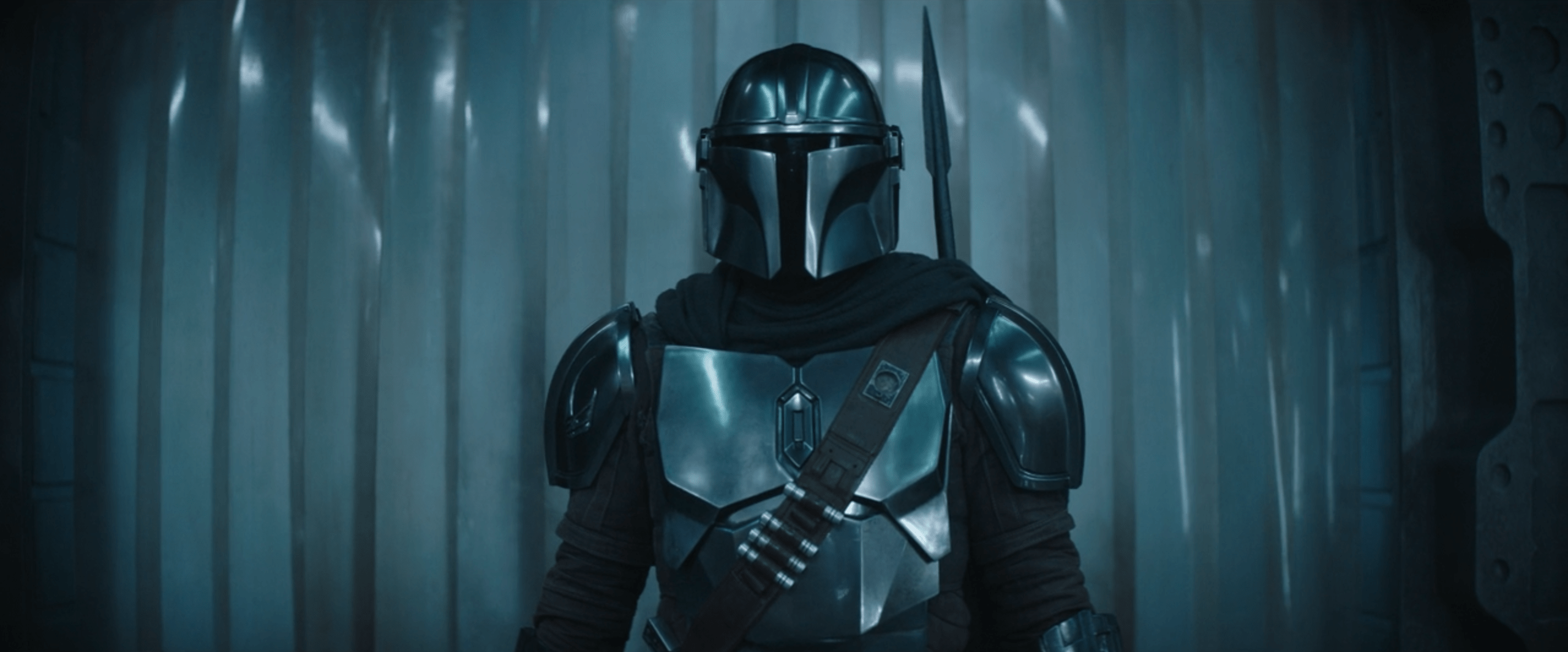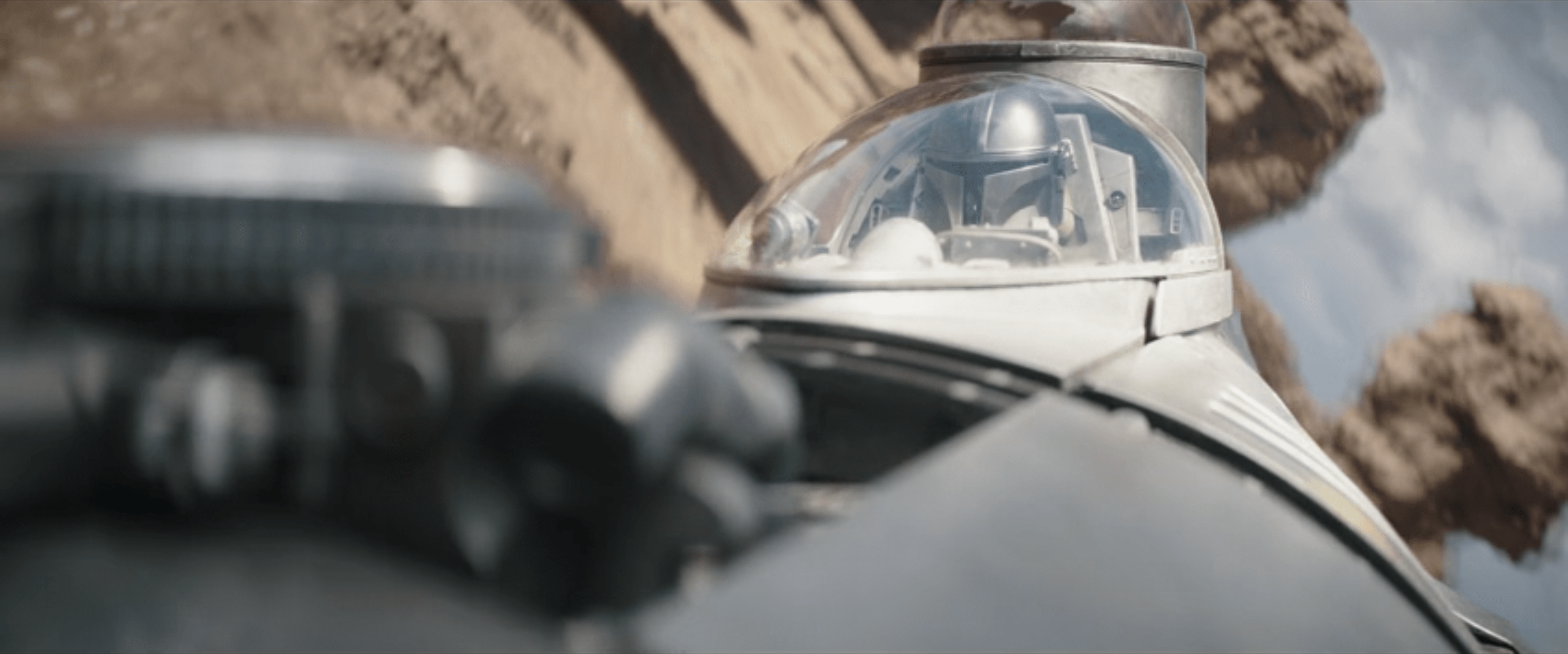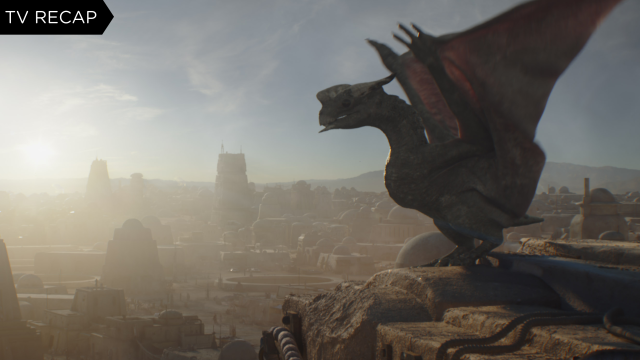This week’s episode of The Book of Boba Fett has an energy quite unlike anything the show has delivered so far. It also has a story quite unlike anything the show has delivered so far. And a cast. And a premise. Because, as strong as it was, it wasn’t an episode of The Book of Boba Fett at all — and being as good as it was only served to highlight some of the show’s biggest problems.

Last week I suggested that by moving on from its flashbacks — having told the stories it needed to tell for its protagonists — The Book of Boba Fett had nowhere else to go but forward, progressing the inevitable conflict between Boba and Fennec’s burgeoning criminal forces and the Pyke syndicate. So imagine my surprise when Chapter 5, “Return of the Mandalorian,” decided there was in fact actually somewhere else to go: Season 3, episode 1 of The Mandalorian.

With The Book of Boba Fett’s titular protagonist nowhere to be found in its runtime — the only connective tissue being a final scene between Fennec and the series’ surprise guest protagonist, Pedro Pascal’s Din Djarin — “Return of the Mandalorian” pays off on last week’s musical stage setting in a way that perhaps few could’ve expected. Instead of bringing Boba to The Mandalorian, it brings The Mandalorian to Boba by giving us an episode that entirely follows Pascal’s bounty hunter in the wake of the defeat of Moff Gideon in season two’s climax. Burdened with both the loss of Grogu and the unwieldy weight — both physically and metaphorically — of the Darksaber he now possesses, “Return of the Mandalorian” sees Din, a man who we last saw opening himself up to those around him in the name of protecting his child, shunned and isolated by the sacrifices he made to ensure Grogu’s safety.
Fortunately, perhaps like all good Star Wars, “Return of the Mandalorian” gets by on the gaping narrative wounds it inflicts upon its larger self with a lot of charm. Just because it’s an episode of The Mandalorian and not The Book of Boba Fett does not make it inherently bad — in fact, quite the opposite, with returning director Bryce Dallas Howard arguably delivering her strongest live-action Star Wars so far, which is saying something given her track record includes Mandalorian’s “Sanctuary” and “The Heiress.” From the opening bounty brawl to Din careening through Beggar’s canyon with his new starfighter, to moments light and grave in between, “Return of the Mandalorian” is paradoxically one of The Mandalorian’s best episodes despite not being an episode of The Mandalorian.

There’s plenty of Star Wars’ inherent love of the familiar, of course, as Din checks in on characters like the Armorer and Paz Viszla, on Pelli Motto and even a familiar New Republic X-Wing pilot, and see the visual iconography of everything from Jedi: Fallen Order’s BD droids to the iconic Naboo Starfighter of the prequels, repurposed for this new era (the latter shining, even in its beaten-down form, as Din’s replacement for the Razor Crest in an exhilarating test flight). There’s also tantalising explorations of worldbuilding for the Mandalorians at large, as we see the aftermath of the Empire’s purge of the planet, and the lingering shadow of the dueling aspects of Mandalorian culture that continues to damn the purge’s survivors.
It’s also a surprisingly emotional reflection on the loneliness Din Djarin faces after Luke Skywalker upended his life: Without Grogu, he lacks purpose, wandering the galaxy from job to job, and with the Darksaber in hand, he quickly learns that the man he has become in raising the child has left him an outcast of the clan that raised him. He’s without his former people too — ostracised for abandoning “The Way,” even if in doing so Din became a better person, his former peers in the Covert too blinded by warrior zeal to be aware of just how few of them remain. There is a tragedy how truly alone Din is here. If Din Djarin has nowhere to go but long to see the child he raised as his own once more, The Book of Boba Fett posits, then perhaps he can find a brief sense of purpose in reuniting with Boba Fett, another outcast of the remnants of Mandalore trying to seek his own path.

But for all those strengths, it’s hard not to escape the simple fact that “Return of the Mandalorian” is not an episode of The Book of Boba Fett. Sure, Fennec shows up at the end and offers Din the chance to find some purpose — but not without first, as the latter teases, a potential visit to a certain Jedi-to-be. But all that does is excruciatingly inch the series’ narrative forward. It does so while promising more in service of Din’s personal arc — a character that The Book of Boba Fett was set up as its own show to get away from, to give space to The Mandalorian after a season of indulgent connections to the wider Star Wars universe, so it could spend time rebuilding and re-examining who Boba Fett is in a post-Return of the Jedi world.
The fact that “Return of the Mandalorian” is so exuberantly kinetic in comparison to the tone Book previously established smacks of a lack of clarity of purpose that has lingered throughout the series so far. If The Book of Boba Fett can deliver a tight episode that balances building satisfying character work with fun Star Wars action, why is it only doing so by ejecting itself entirely to become an episode of The Mandalorian? Why can it find the time to navigate and give meaning to the aimlessness Din Djarin feels without Grogu, when it’s still not quite sure how it feels about Boba Fett as a crime lord who is, all things considered, quite bad at being a crime lord?

With two episodes left, The Book of Boba Fett finds itself increasingly out of time to bring its myriad lingering plot threads to any kind of satisfying narrative solution, or even find exactly it wants its vision for Boba Fett to be. The stage is set for something grand as Din Djarin and Boba Fett reunite — but that stage has been set for several episodes now, as The Book of Boba Fett has clunkily jammed the brakes over and over again. As good as this latest indulgence might have been, for it to ultimately matter — and for Boba Fett himself to come out of this series stronger than he came into it — the series has a lot left to prove… and little time to do it.
